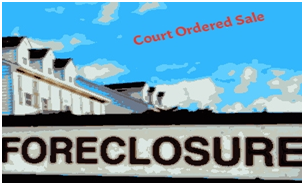Foreclosure is an action through which lenders legally can collect their dues from their defaulting borrowers by selling the asset pledged in the loan agreement. If the borrower is not making the necessary efforts to clear his/her debts timely as per the agreement, the lender is at liberty to foreclose on the house. Foreclosure is not so much an option to both the lender and the borrower however the one who stands to lose the most is the debtor because you do not only lose your home but also you find it hard to buy another house.Tax bills may accrue from the forgiven debts and credit fallout among other challenges.
Types of foreclosures in Springfield
Foreclosures in Springfield can be classified as:
i) Judicial foreclosure in Springfield
This type of foreclosure entails filing a lawsuit so as to acquire a court order that will enable the lender to foreclose on the borrower and obtain the outstanding balance owed to him/her.It is applied where the power of sale clause on the mortgage or on a deed of trust does not exist.Once the court awards a go ahead on the foreclosure, the home will be auctioned and sold to the highest bidder.
ii) Non-judicial foreclosure in Springfield
Under this type, the power of sale clause is included in the mortgage or the deed of trust, which with the consent of the borrower preauthorizes the sale of the property to clear the outstanding balances should the borrower default on his/her payments.This power may be executed by the lender himself or through a third party or their representatives commonly known as a trustee.
Foreclosure ordinances in Springfield
These ordinances in Springfield are meant to protect the homeowners in the event of a foreclosure.They ensure that the lender does the following:
a) Pre-foreclosure mediation
This mediation is meant to bring the lender, the borrower and an impartial mediator between. The purpose is to help the two find a way forward that is attractive to both.The financial status of the debtor is to be looked into and discussion made on how to go about the payments so that the home owner can keep the home or give it up without having to go through foreclosure. The property that qualifies for mediation must be owner occupied, primary residences for the debtor and at least four units.
b) Lenders put up a cash bond and maintain vacant homes
Vacant homes may pose a threat to the security of the public as unsecured and unmaintained properties may attract vandalism and thieves making the neighborhood insecure bringing down the value of homes in the environ.To avoid this, the banks among other mortgage providers are required to put up a cash bond of $10000 to the city at the beginning of a foreclosure so as to ensure that the vacant property is taken care of during and after process. Here if the company maintains the property it will be refunded the money once a new owner moves in. If it leaves the home to deteriorate, then the city can use the cash to pay for its upkeep.
Sources

